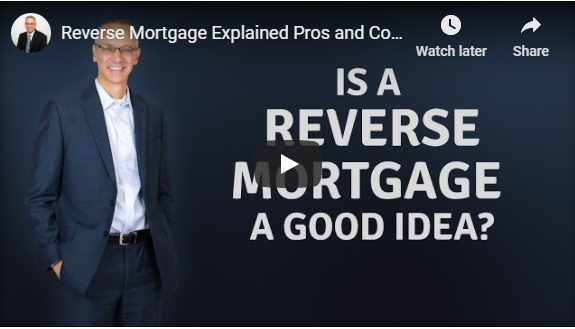Under the right circumstances, a reverse mortgage loan from an approved and respected lender can be a great way to improve your financial situation in retirement.
Many seniors, understandably, are intensely concerned with remaining independent for as long as possible in their golden years. A reverse mortgage provides the financial stability to stay in your home and maintain your independence for years. In this article, we’ll cover the basics of reverse mortgage loans, how they work, and how to know if one is right for you.
What Is a Reverse Mortgage Loan?
A reverse mortgage loan, as the name suggests, is the inverse of a conventional mortgage. In a typical mortgage agreement, the bank floats the homeowner the cash they need so that they can purchase a home. In exchange, the homeowner is responsible to pay the bank monthly until the debt, plus interest, is repaid. With a reverse mortgage, the bank gives the homeowner loans with the home as a guarantee of repayment. The homeowner’s right to remain in their home is legally protected until death, at which point the bank is often repaid through the final sale of the home.
Reverse Mortgage Criteria
There are some basic minimum requirements that homeowners must meet in order to qualify for a reverse mortgage loan. Let’s explore what basic conditions the applicant must satisfy before receiving a loan, and then we’ll discuss which reverse mortgage packages are most attractive to seniors.
As an applicant, you must be at least 62 years old. You must also have a large amount of equity that can be tapped and you must not have any liens or other legal injunctions on the property. Furthermore, you must occupy the home as your primary residence, maintain it, and pay the property taxes regularly.
Choosing the Right Type of Reverse Mortgage
There are 6 types of reverse mortgages:
-
Fixed-Rate Lump-sum Reverse Mortgage Payment
Fixed-rate lump means that you get all the money at once and the interest rate is fixed. Unfortunately, this gives people not familiar with handling large sums of money the opportunity to spend it all and then be worse off than they were before.
2. Reverse Mortgage Line-of-Credit
Similar to a home equity line of credit (HELOC) a reverse mortgage line of credit lets you borrow against your home’s equity but a reverse mortgage line of credit is irrevocable i.e. it can’t be canceled or reduced because of changes in your finances or home value.
3. Term Reverse Mortgage
With a term payment plan, you reach your loan’s principal limit—the maximum you can borrow—at the end of the term. After that point, you won’t be able to receive additional proceeds from your reverse mortgage. However, you will be able to stay in the home
4. Modified Term Reverse Mortgage
A fixed monthly payment for a predetermined number of months, plus access to a line of credit.
5. Tenure Reverse Mortgage
This is the one you generally think of as a reverse mortgage. It provides equal monthly payments for life, as long as at least one borrower still lives in the home as their primary residence. It does have an adjustable interest rate but still has the least risk of running out of money.
6. Modified Tenure Reverse Mortgage
It provides both fixed monthly payments for life and a line of credit in case you need more money for special needs. But to do this it pays a smaller monthly payment than if you chose a straight tenure plan.
For more details on these various forms see this article on Investopedia.
Selecting the Best Reverse Mortgage Loan Provider
When choosing a reverse mortgage loan provider, you should select the loan provider based on a few simple criteria. First, look at customer satisfaction reviews online. If they have a history of positive feedback, you’ll likely have a good experience with them. Of course, any lender you consider should have the appropriate licensing. Secondly, consider what payment options they offer. Online tools are convenient and become especially helpful as you age and become less mobile. Once you’ve got it narrowed down to a few lenders, look for the one that has the best loan rates for your situation.
The right reverse mortgage loan could be the tool you need to remain independent and finish your life in dignity and the comfort of your own home. When you perform your due diligence as a loan seeker using the information and tips provided here, you’ll be better able to find the right lender for you.
You Might Also Like:
- Empty Nest Finances— Downsizing Tips to Increase Your Retirement Budget
- Savvy Ways to Save For Retirement
- Preparing for Retirement
- Getting the Most from Your Retirement Plan
- 4 Types of Trusts That Can Protect Your Assets
- Navigating Estate Planning and Probate Law
- Essential Investment Considerations for Seniors
- Retiring to the Mountains: Enjoying Your Retirement

